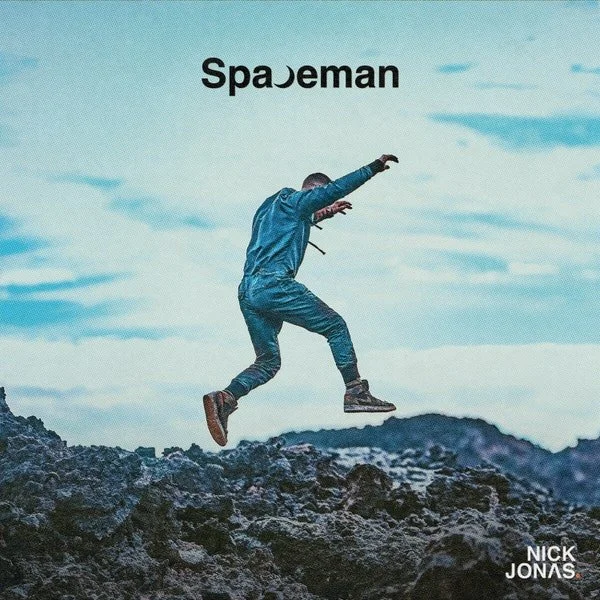Album Review: Nick Jonas' 'Spaceman' Fails To Take Off
Most people are familiar with the saying "if it ain't broke, don't fix it." The issue with this beloved phrase is that it leaves little to no room for even the slightest of tweaks to a formula that has been proven to be successful. Herein lies the issue with Nick Jonas' Spaceman. The former Disney star found a formula that worked well for him on 2014's Nick Jonas. He stayed true to that blueprint with the 2016 follow-up, Last Year Was Complicated. Now, with Spaceman, Nick has fallen back into that formula, but, for a number of reasons, it no longer works. Three albums of the same general sound and sentiment get redundant no matter how good the songs are. Furthermore, when there is an unwillingness to tweak a formula, it makes it difficult to fit a conceptual album into that blueprint. It's like trying to build a five-story condo from some popsicle sticks and Elmer's glue. The vision is there, but Nick isn't utilizing the proper tools to bring that vision to life.
As Nick's first solo album post-Jonas Brothers reunion, Spaceman was a prime opportunity to begin a new phase in his career and artistic evolution. In fact, the lead single, "Spaceman," released just two weeks prior to the full LP, seemed to signal a change in direction of some sort. Produced by Greg Kurstin and written by MoZella and Nick himself, "Spaceman" plunged Nick into the now-standard trap-influence of today's Top 40. The track is quite the mélange of influences with splashes of acoustic guitar, a heavy dose of Auto-Tune as an intriguing stylistic choice, and big Phil Collins-esque drums right before the final chorus. "Spaceman" would fit perfectly in any 2021 pop/R&B playlist, but you'd be hard-pressed to find a song that sounds like it. "Spaceman" not only introduced Nick's newest album, but the song also introduced the concept for the album of the same name. When asked about the album's title, Nick said "The key for me was trying to find a way to give this idea a persona, give it a name. So 'Spaceman' kind of came into my mind as I was thinking, 'What's the one thing that all of us have felt during this time? Completely disconnected from the world." Furthermore, the record covers four main themes of distance, indulgence, euphoria, and commitment. Created in isolation during the COVID-19 pandemic, Spaceman has the influence of the times hanging over its head. The influence of lockdown and the general turmoil of the nation would have likely influenced the music in one way or another, but with this title and explicit theme, Nick is making the conscious decision to purposely attach his music to those greater themes. In that vein, Spaceman should theoretically be his most expansive and revelatory record, but it's absolutely nothing of the sort.
Island
On its lyrical and sonic fronts, Spaceman is entirely too vapid to truly capture even a fraction of the energy of the past year. The primary issue with Spaceman is that it rarely, if ever, deviates from its central R&B-influenced pop sound. There are your typical pulsating synths, some guitar and piano pop up here and there, and 808s make their presence known throughout the record. On the one hand, the lack of variation automatically makes the album a cohesive unit. On the other hand, however, Nick would have been better off sacrificing some of that cohesiveness for greater diversity in sound. Nick isn't the only culprit in this case. Pop music giant Greg Kurstin produced every song on the album and the repetitiveness of the album reflects on him as well. Kurstin is one of the best and most successful pop music producers of the past decade or so. The songs on Spaceman are very well produced, they just blend together into one long song. The album would have definitely benefited from another producer or two, or at least greater risk-taking from a sonic standpoint. Nick could have also benefited from some collaborations like on his previous record. There are moments when the album clicks. In addition to the title track, "Delicious" is another standout. The track leans heavily into its Prince influences with a rambunctious opening horn section and a flirty vocal performance. Sonically, the song sounds like a pastiche of something from Justin Timberlake's FutureSex/LoveSounds. Spaceman struggles to be worth paying attention to for most of its run, but moments like "Delicious" force you to wake up and remind you that Nick can make some really solid music. There's also the album's opener, "Don't Give Up On Us," which balances electronic pulses with piano as Nick uses his signature falsetto to sing a few hopeful couplets that are general enough to be applicable to any situation. The mixing on this track is a bit odd; Nick kind of sounds like he's drowning on the track, almost as if he's floating in outer-space while we hear him sing back on Earth. Small details like these prevent Spaceman from completely falling apart, but, sadly, that's only one part of the battle. The songs on Spaceman should be good. They have all the elements that should result in pitch-perfect pop songs. Take the most recent single, "This Is Heaven," for example: Nick gives us a thumping synth and bassline, a catchy melody, and (of course) a backing choir because what other way could there possibly be to show that you're making a song that invokes religious themes? In theory, this should work; it's essentially the 2021 version of his viral live performance of "Jealous," you know the one. "This Is Heaven" ultimately falls flat because, like most of Spaceman, it's too predictable and by-the-numbers. Where's the risk? Where's the twist? Where are the parts that are going to make these songs or this album different from his last two efforts? Those parts never come.
Lyrically, especially outside of the title track, Spaceman struggles to articulate why the album was tied to the events of the past year in the first place. Truthfully, these songs could have been written and recorded regardless of whether or not the pandemic even happened. The pre-chorus of "Deeper Love," for example, is painfully empty: "Wherever you go I'll go/'Cause we're in it together/Forever, always, hold on/'Cause it only gets better." Nick is singing of a "deeper love" and is trying to inspire hope in the face of multiple pandemics, and yet the lyrics are as bland as can be. Spaceman never digs deep enough lyrically to convey why hope is so necessary in this specific moment or how love and loyalty have been tested in these times. On "If I Fall," he relies on overused lyrical tropes like "cannonballs" and "hearts on fire"; Nick has never been an otherworldly songwriter, but the monotonous production of the album and the emphasis on the four themes draw more attention to the lyrics and they simply don't pull their weight. If an album proves to be sonically uninteresting, lyrically weak, and conceptually flat, where are the bright spots? For one, Nick sounds as great as ever as he floats in his falsetto and dips into the lower end of his range on occasion. He isn't able to sell every song on the album, although it's probably impossible that anybody could make a song as utterly unsexy as "Sexual" sound good. All in all, Spaceman isn't terrible. The album has its share of solid tracks and it'll likely have a hit or two on radio and streaming. Unfortunately, it fails as a concept record and it's the final piece of proof that Nick needs to reinvent his formula. It's time for something different that will challenge both himself and his listeners.
Key Tracks: "Don't Give Up On Us" | "Spaceman" | "Delicious" | "Death Do Us Part"
Score: 59







